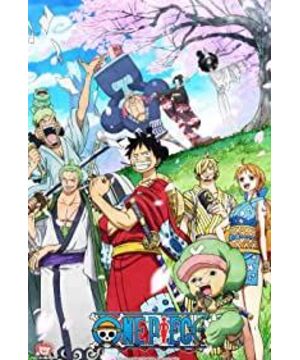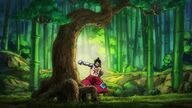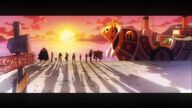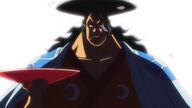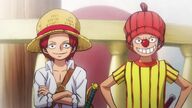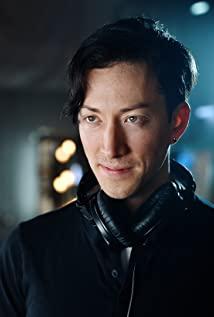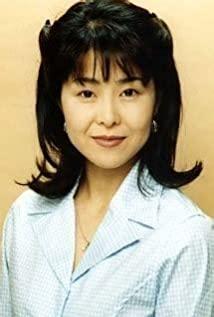Do you still think that all anime are popular consumer goods? In One Piece, we can at least read Kierkegaard, Aristotle, Socrates, Russell, and Nietzsche. In the world of anime, there is a pirate named Portgas D. Ace, whose father is the famous One Piece Gol D. Roger. Because the son of One Piece is regarded as "the son of the devil", Ace has been full of doubts about his life since he was a child. Although he tried to prove his meaning in the pirate group, he always lingered "I am not qualified to live here." shadow of the world. In the world of philosophy, there is a philosopher named Soren Kierkegaard, who was born after his father, who was a missionary, raped the housemaid. Because he believes that his own existence is "a sin", Kierkegaard searched for masters of philosophy, hoping to find a philosophy that proves his existence is no longer a sin, but was disappointed to find that there is no theory that can really answer life problems from within. Kierkegaard founded modern existential philosophy in confusion: "We need to be freed from the wrong understanding of the object of interpretation." He advocated breaking the habit of grasping by external thinking and turning to internal self-knowledge and awareness. And Ace is the best interpreter of Kierkegaard's philosophy: on the death row, he watched his partner sacrifice for himself, and suddenly ignited the desire to live, which is called "existential awakening". Ji Jianzhi, a professor at the Department of Philosophy of Huafan University in Taiwan, wrote the story of Ace and Kierkegaard into his new book "One Piece's Philosophy Lesson: Justice, Dreams and the Great Path of Life" (hereinafter referred to as "One Piece's Philosophy Lesson") , trying to deconstruct this work from the perspectives of philosophy of life, moral justice, fairness and justice, logical fallacy and life aesthetics. Those who see anime as a popular consumable may be inspired differently: in One Piece, you can read Nietzsche, Russell, Descartes, Socrates and Aristotle. The theory of justice discussed by Aristotle and Socrates is perfectly illustrated in Blackbeard. "Eiichiro Oda probably has read a lot of philosophy," said Ji Jianzhi, who teaches courses such as "Critical Thinking", "Logic", "Philosophy of Mind" and "Philosophy of Science" at the university. Three years ago, he watched "One Piece" at the recommendation of a student, and was pleasantly surprised to find that it was more interesting than expected: "It expresses some very interesting philosophical points in a very dramatic story." In Oda In the world created by Eiichiro, you can at least learn a little about the philosophical theories of Aristotle and Socrates: what exactly is true justice? The word "justice" is prominently printed on the navy uniform organized by the government in "One Piece", and whether it is an admiral or a pirate who is defined as a villain by the world, different positions and individuals have completely different views of justice. In Ji Jianzhi's view, these diverse views of justice are almost universal in the field of philosophy. Find the school and representative that corresponds to it. There is a famous scene in "One Piece": Luffy was imprisoned in Imper Prison, and when he was about to escape with a group of people, the deputy director of the prison, Hannibal, said to him a beautiful sentence: "You are just notorious. The pirates and conspirators are nothing more than pirates and conspirators, as long as you people exist at sea, the people will sleep at night because they are afraid of losing their loved ones.” Usually speaking, protecting the weak is an act of defending justice. After pulling said this, Luffy hesitated. At this time, the big villain Blackbeard came out and responded: "Shut up, don't always talk about justice or evil, even if you search every corner of the world, there will be no answer!" Ji Jianzhi likes this very much. In other words, because it represents the conflict of two moral views, it unintentionally reveals the truth of philosophy: "There is no absolute standard between justice and evil. According to this story, we can explore famous theories in the field of philosophy: Moral relativism." The character of Blackbeard is undoubtedly an excellent representative of moral relativism: "From the point of view of moral values, Blackbeard is definitely an immoral person, because he kills for his ideal Devil Fruit. He killed the original captain Ace in the name of 'Shibukai', and also caused Ace to be arrested by the navy, which led to the Marineford peak war. In addition, he also released several notorious prisoners. These It's all immoral things he did. However, from a moral point of view, only his anti-social character can be seen, but Blackbeard's most important life characteristics cannot be appreciated. Some people's life characteristics must be viewed from a different perspective Only then can we discover its distinctiveness.” Whether it is the life aesthetics characteristics summarized by Nietzsche or Russell’s thought experiments on metaphysics, they can all be well-placed in One Piece. If you want to understand the life quality of Blackbeard, you may need to read a little Nietzsche. In The Birth of Tragedy, Nietzsche used Greek mythology to distinguish two aesthetic qualities of life: one is the rational characteristic belonging to the sun god Apollo, and the other is the emotional characteristic of Dionysus, the god of wine. Rational traits tend to have a peaceful and moral aesthetic of life, while emotional traits tend to lead a life of the most comfortable and pleasant life. "In the eyes of Blackbeard, most people belong to the uninteresting crowd under rational constraints. This style is the sensibility of Dionysus." The rigid philosophical theory, if fermented with anime characters, can become easy to understand : "Through such a life sentiment of his, it will be more thorough and interesting to analyze the philosophical work of Nietzsche's The Birth of Tragedy, and students will be able to better understand the aesthetics of life." Even if he shoulders the heavy responsibility of the number one villain , Blackbeard is still a man full of dreams. "Dream" and "belief" are the core elements of the "One Piece" worldview, and everyone in the pirate group firmly holds the belief that "dream will eventually come true". In the eyes of some, this is a paradox: there is only one One Piece, how can everyone's dream come true? The philosophical theory of metaphysics can answer this question very well. "In the metaphysical worldview, all dreams are possible, or more precisely, all dreams, if there is a slight possibility, are certain to be realized in some parallel world, the problem is only that we Whether our hard work and persistence can lead our will to the parallel world of our own dreams." Ji Jianzhi doesn't think the strange philosophical view in "One Piece" is an absurd idea, in fact, it is very likely to be Reality. As in Russell's interesting thought experiment on metaphysics: Suppose the world was created by God 5 minutes ago, who can prove that this is not the case? In "One Piece", you can also find the existence of "consequentialism" and "utilitarianism" in ethics. In the O'Hara incident, in order to annihilate the archaeologists who had the ability to revive ancient weapons, Admiral Akainu ordered the destruction of the entire O'Hara Island, and even shelled the refuge ship that transported civilians. Akainu has his own considerations: once a scholar mixes with the civilians and survives, it will definitely cause great harm to the world, so he would rather kill a hundred by mistake than let go of one. Akainu's actions have sparked controversy among Pirate fans, but from an ethical standpoint, it's a matter of course. "In 'consequentialism' and 'utilitarianism', everything is only judged by the good or bad of the result. In order to prevent the world from being destroyed, one can do whatever it takes, sacrifice the interests of a few people, and take the benefit of the most common people as the basic standard. Those who Innocent people who have been killed by mistake should be regarded as dedicating their lives to the world." "Manga is more and more like real life, at least it can cause us to think." In Taiwan, "One Piece" is undoubtedly the most popular work among young people today. , Ji Jianzhi does not want to see that "One Piece's Philosophy Lesson" is just a best-seller, he hopes that by introducing popular culture, he will awaken students' interest in philosophy. enthusiasm. In September 2014, "One Piece's Philosophy Course" will appear as a public elective course at Huafan University in Taiwan, and the target is limited to philosophy students who are in the sophomore year or above. "I want to turn it into a course that emphasizes both practice and theory." Ji Jianzhi said. The theoretical course takes "One Piece's Philosophy Class" as the lecture notes. In addition to discussing issues such as justice, morality, aesthetics and existentialism, each student also needs to find a role in "One Piece" that they are interested in and interpret their moral concepts. "Dreams and adventures" will become the practical focus of this course, which is rarely practiced in philosophy teaching in the past. The "dream" part is simple: let's discuss the origin and nature of dreams together, and rethink "what else can I dream of". The "adventure" part is much more interesting: "I want them to practice an adventure, go to a small remote village, take a solo trip, and treat it as a homework." During the trip, the students were Ask to hold a notebook, record everything you observe at all times, go to a small cafe, sit for an hour or two and think in meditation, and find a stranger there and have a 10-minute game with him The above conversation, and finally leave his contact number. This adventurous practice will be the most important criterion for Jijian's examination of students' performance. "A course with the theme of "One Piece" will not have an exam." Jijian's practice has proved one thing: today's animations are no longer just a way of entertainment like they used to be, they can also be a means of education. An obvious feature is that they no longer distinguish between good people and bad people, and they no longer label good and evil. "Modern anime explores people's hearts more and more deeply, and the stories are more and more profound and thought-provoking. Even a villain often shows a cute and bright side, attracting many people who appreciate him—— Comics are becoming more and more like real life, at least they can make us think." Many philosophical professionals have tried the philosophical deconstruction of popular culture before Jijian. David Baggett, professor of philosophy at King's College in Pennsylvania, once joined 17 philosophers and wrote a book "Harry Potter's Philosophical World: If Aristotle Ruled Hogwarts"; and his Colleague Gregory Basham took another angle and wrote The Lord of the Rings and Philosophy. The Matrix and Philosophy: Welcome to the Desert of Reality, written by American scholar William Owen, is still regarded as the most profound interpretation of the film; John Tyman Williams, Ph.D. A younger version of "Winnie the Pooh Talks" In Philosophy, this big fat bear is hailed as the best spokesperson for Taoist thought. Ji Jianzhi is not at all worried that "One Piece's Philosophy Lesson" will be judged as an "irregular" work by the orthodox philosophical community: "In the world of philosophy, even if you write orthodox philosophy, it will definitely not be recognized. . If there is a consensus, we can't call it a 'philosophy'."
View more about One Piece reviews


